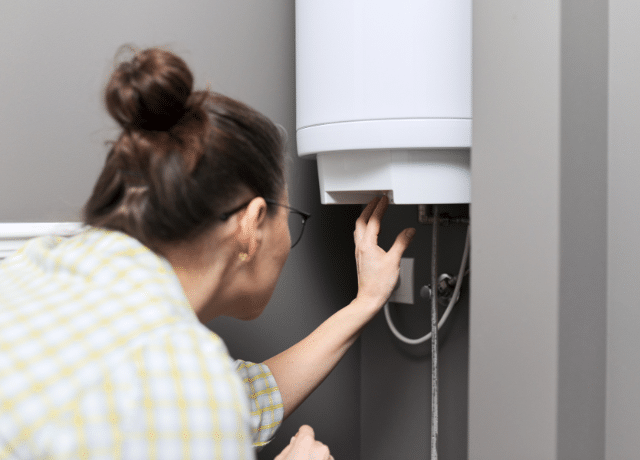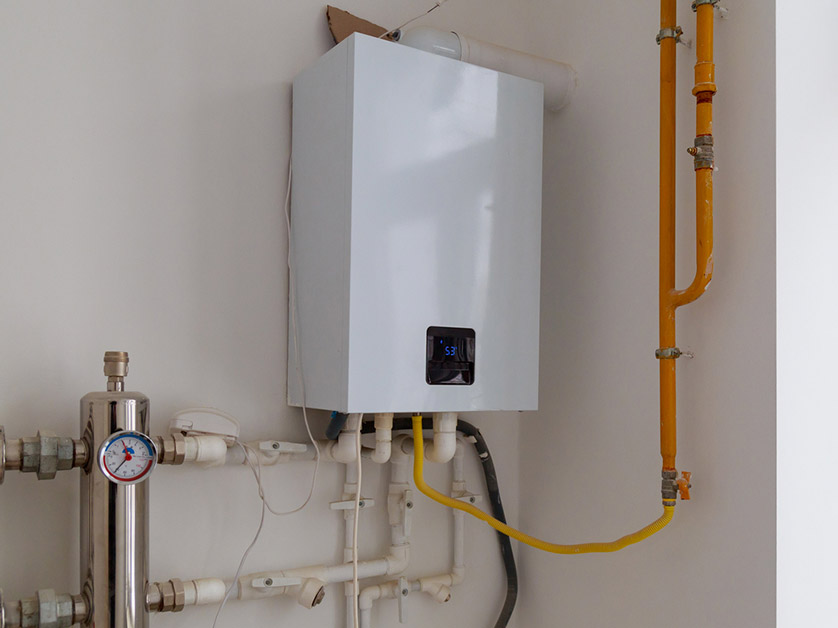Learning About The Significant Benefits Of Smart Water Heaters
Learning About The Significant Benefits Of Smart Water Heaters
Blog Article
Any individual has got his or her own piece of advice about Unveiling the Hot Trend: The Benefits of Tankless Water.

In a globe where ease and efficiency reign supreme, it's not a surprise that homeowners are continuously looking for smarter methods to manage their home's energy usage and comfort. One innovation that has steadily gotten appeal is the tankless water heater. Yet what exactly makes these systems stand apart from the conventional tank-based versions the majority of us matured with? Let's dive in and discover the advantages of tankless hot water heater, assisting you make a decision if it's time to make the switch in your house.
Introduction
Image this: you step into the shower after a lengthy day, expecting a comforting cascade of warm water, only to be welcomed by icy beads due to the fact that the last person utilized it all up. Noise acquainted? Traditional hot water heater store a fixed quantity of warm water, meaning you're at the grace of that tank's supply. Tankless systems, on the other hand, warm water as needed. Say goodbye to going out mid-shower, say goodbye to wrestling with routines just to make sure hot water is offered.
Comprehending Tankless Water Heaters
What Are Tankless Water Heaters?
Tankless water heaters, sometimes called on-demand or immediate hot water heater, provide warm water only as it's needed. Rather than keeping gallons of pre-heated water, these units kick into action the moment you switch on the faucet. Water passes through a warmth exchanger, heating up in real-time, indicating you obtain a nonstop circulation of warm water without the requirement for a large container sitting idly by.
Just how Do They Differ from Traditional Equipments?
Conventional heaters hold a reservoir of warm water, using power to maintain that tank at a consistent temperature level. Tankless systems eliminate the standing supply, minimizing wasted power and the large footprint of a big cyndrical tube. Essentially, you're upgrading from a "accumulation" state of mind to a "made-to-order" technique.
Typical Types of Tankless Units
Tankless hot water heater typically come in two selections: gas and electrical. Gas models often tend to deliver greater circulation rates, suitable for larger families, while electric versions commonly serve smaller homes and are normally easier to set up. In addition, some systems are designed for point-of-use (serving one component) while others can deal with the whole home's warm water demands.
Key Advantages of Tankless Water Heaters
Energy Performance and Price Financial Savings
No more warming a giant tank's worth of water and keeping it toasty all day. Tankless heating units decrease standby power losses, which can decrease utility bills. While the initial price may be greater, the lasting financial savings usually validate the financial investment.
3. Space-Saving Style
If your home is short on storage space, removing the cumbersome tank maximizes beneficial space. Tankless systems are portable and can frequently be mounted on wall surfaces, stashed in corners, or installed in limited energy wardrobes without monopolizing the whole area.
4. Longer Life expectancy
A properly maintained tankless hot water heater can outlast its tank-based cousin. Standard storage tanks may last 10-15 years, while tankless versions can maintain chugging along for two decades or more, making them a solid investment over time.
1. Limitless Hot Water Supply
Ever needed to set up showers so everybody obtains their reasonable share of hot water? With tankless, that ends up being a distant memory. As long as the heater's circulation capacity isn't exceeded, you can take back-to-back showers without turning into a popsicle.
5. Improved Water Quality
Saving water in a container can sometimes bring about debris accumulation or a slightly "off" taste. With tankless systems, fresh water is warmed right away, reducing the opportunities of debris buildup and possibly using cleaner-tasting water.
Considerations Prior To Changing
Though the benefits are engaging, it's wise to consider a couple of variables prior to completely dedicating.
Examining Your Home's Water Use Patterns
If your household concurrently utilizes multiple components with high warm water need, make certain the unit's flow rate satisfies your demands. Recognizing your usage patterns aids you choose the best dimension and type of tankless heating system.
Maintenance and Treatment Tips
Tankless systems are relatively low upkeep, yet they aren't set-it-and-forget-it devices.
Routine Cleaning and Descaling
Difficult water minerals can accumulate in the warm exchanger, impacting effectiveness. Normal descaling (commonly advised annually) keeps the unit performing at peak performance.
Yearly Specialist Evaluations
A yearly checkup from an expert makes sure minor issues are caught early. They'll assess the unit's performance, try to find leakages, and aid maintain optimum efficiency.
Initial Investment Prices
Tankless heaters usually come with a greater ahead of time price. Between the unit itself and prospective setup modifications, the first expense might offer you sticker label shock. However remember to watch it as a long-lasting investment.
Installment Requirements
Depending on your home's framework, you might require additional electric capacity or gas line upgrades. Ensure you understand the setup needs and speak with a specialist to avoid surprises.
Guaranteeing Appropriate Air Flow
For gas versions, proper ventilation is important to securely eliminate exhaust gases. Make sure venting systems are clean and appropriately set up to prevent any potential safety and security dangers.
Comparing Different Brands and Versions
Not all tankless water heaters are created equivalent.
Investigating Dependable Manufacturers
Look for credible brand names with a background of creating high quality units. A reliable supplier usually supplies better consumer support and longer service warranties.
Installation: Do It Yourself or Professional?
While some house owners enjoy taking on projects themselves, tankless setup might not be the most effective time to break out the toolbox.
Benefits and drawbacks of DIY Setup
A DIY set up might conserve cash, but it includes dangers. Inaccurate setup can cause inadequacy or security concerns. If you come in handy and have experience, it could be viable-- however proceed with caution.
Checking Out Evaluations and Individual Comments
Individual reviews and feedback from neighbors or buddies who have actually gone tankless can use important insights. Sometimes, real-life experiences can be more informing than advertising sales brochures.
When to Call an Expert Plumbing
For most, calling a professional guarantees every little thing's done properly. An expert plumber comprehends neighborhood codes, sizing demands, and airing vent parameters, minimizing the risk of incidents.
Optimizing Efficiency
You've purchased a tankless device-- currently optimize its performance.
Optimal Temperature Settings
Lots of people establish their units between 120-140 F. Changing the temperature level can improve comfort and savings. Experiment to locate a sweet spot that does not squander energy.
Coupling With Low-Flow Fixtures
Wish to stretch your unit's capabilities? Take into consideration setting up low-flow showerheads and faucets. They minimize water usage, allowing your tankless system to deliver a steady stream of warm water without stressing.
Environmental Impact
Tankless water heaters straighten with greener living goals.
Reduced Carbon Impact
By using much less power and only home heating water as needed, tankless systems can decrease your home's carbon footprint, lowering your environmental impact.
Saving Natural Resources
Much less energy usage and much less squandered warm water translate right into less natural deposits being utilized, an environmental win-win.
That Profits The Majority Of from Tankless Heating units?
The charm of tankless heating systems is that they can match a range of houses.
Huge Households vs. Solitary Occupants
Huge family members might like the limitless warm water supply, while single passengers appreciate the energy cost savings from not heating an entire tank for simply a single person's morning shower.
House Owners with Restricted Space
If your home is short on square footage, shedding the large container maximizes room for various other fundamentals-- or maybe simply a lot more breathing space.
Eco-Conscious Consumers
Going tankless aligns with eco-friendly values, guaranteeing you're not wasting energy or resources.
Future Patterns in Tankless Hot Water Heater
The globe of home devices is ever-evolving, and tankless hot water heater are no exemption.
Innovations in Modern technology
R&D is constantly improving heat exchangers, making systems more effective and long lasting. Future designs could be also quieter, much more small, and much better fit for differing climates.
Smart Home Assimilation
Imagine adjusting your hot water heater's temperature through an app or getting upkeep alerts on your phone. As smart home tech advancements, we'll see even more connection and ease.
Final thought
Selecting a tankless water heater is more than simply updating your home's hot water system; it's investing in lasting convenience, energy effectiveness, and a greener way of life. By considering your house's water usage, bearing in mind installment demands, and devoting to routine maintenance, you can delight in a steady stream of warm water without the luggage of a large container. As innovation evolves, you can expect even smarter, extra efficient tankless solutions that not only make your life simpler however likewise profit the planet.
Pros and Cons of Tankless Water Heaters
Tankless Water Heater Pros
Saves Energy: Simply put, you re spending less energy to create hot water, so your total carbon footprint goes down, not to mention your bills. Lasts Longer Than Storage Tanks: Storage tank units need to be replaced every 15 years or so. But tankless units? They can last for 30 years before they give out on you. Constant Hot Water: Need to take a shower and don t want the water running cold? Awesome it won t. The water will stay hot the entire time because it creates hot water on demand. Saves You Money: Less water usage equals less money. Beyond that, you re not paying to keep water hot 24/7. Those savings add up quickly. Better for the Environment: Less water waste is better for everyone. It saves you money, but it s also environmentally conscious at the same time. Tankless Water Heater Cons
It Can Take a Minute: Depending on your specific unit and its placement, it can take anywhere from 10 seconds to 2 minutes to fully heat up. Because there s no storage tank, it heats water as you need it. Upfront Purchase Price: While we talked about their longevity, there s sticker shock when you look at brand-new tankless units to install. It pays for itself, but it s still a big chunk of change at first. Has its Limits: If you run multiple appliances at once, such as the dishwasher, washing machine, and maybe you take a shower at the same time, there might not be enough hot water. https://www.airsouthnow.com/blog/water-heater-service/pros-and-cons-of-tankless-water-heaters/

I discovered that blog post on Six Benefits of a Tankless Hot Water Heater while doing a lookup on the search engines. In case you enjoyed reading our page please make sure you remember to pass it around. Thanks a lot for your time invested reading it.
Free Estimates Report this page